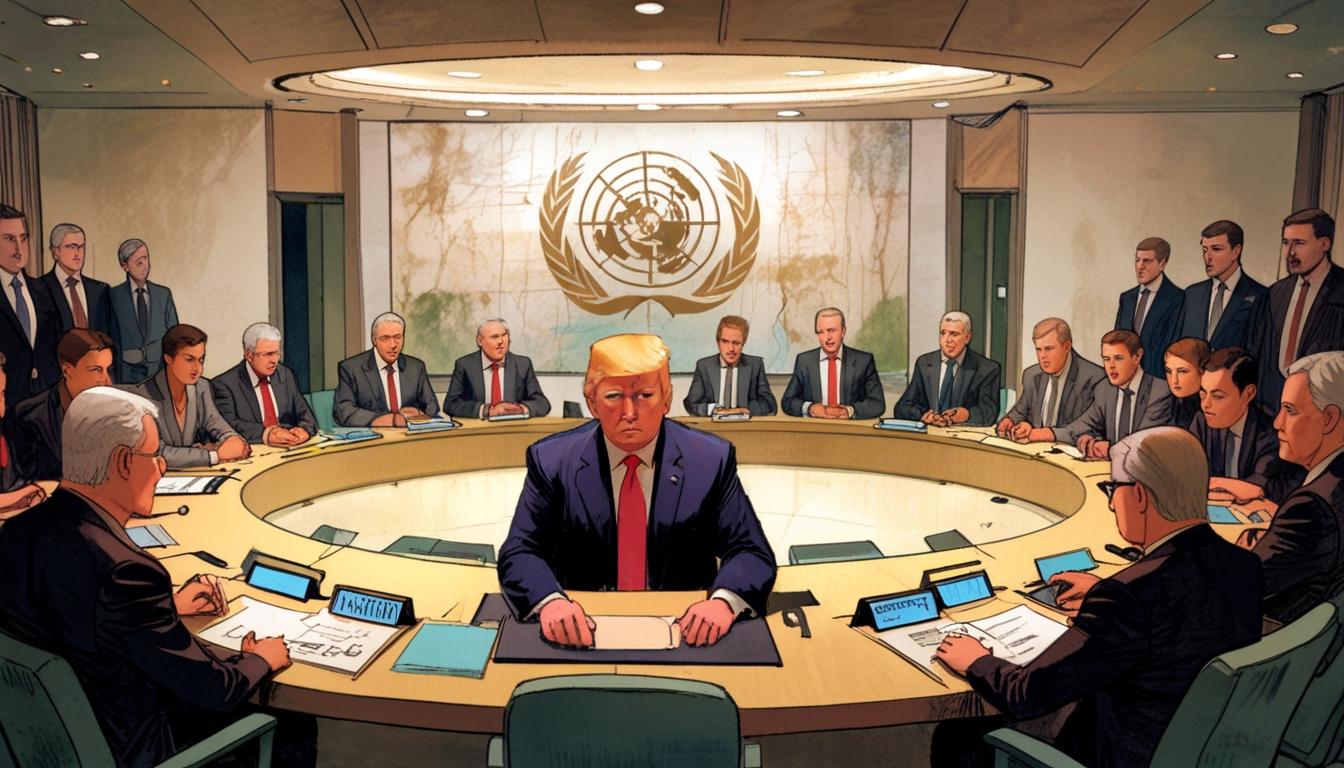Donald Trump's recent actions at the United Nations have raised significant doubts about the effectiveness of US leadership on the global stage, particularly concerning the ongoing conflict in Ukraine. In a startling display, Trump refrained from condemning Russia's aggressive actions during pivotal UN votes critical to Ukraine's sovereignty, positioning the United States in opposition to its traditional European allies.
This unsettling diplomatic scenario took a troubling turn when the US aligned itself with authoritarian regimes like Russia, North Korea, and Belarus by rejecting a UN General Assembly resolution that sought the immediate withdrawal of Russian troops from Ukraine. This resolution, championed by Ukraine and its European partners, gained overwhelming backing, passing with 93 votes in favor. Meanwhile, 18 countries voted against it, while 64 others, including China, opted to abstain. This stark contrast underscores the dwindling alignment between US diplomacy and the core values of its European partners in defending democratic principles and territorial integrity.
In a further display of misplaced priorities, the US issued an alternative resolution that failed to hold Moscow accountable, merely calling for an end to what it described as a "three-year-long war." Even after amendments that included a condemnation of Russia, the US, alongside several nations, chose to abstain rather than stand firmly with its allies—a move that has drawn harsh critique from those who view it as a betrayal of solidarity in the face of aggression.
Amid these moments of notable international disengagement, Trump met with French President Emmanuel Macron at the White House, showcasing an alarming ambivalence towards Russia's actions. His reluctance to label Vladimir Putin a dictator raises unsettling questions about Trump's commitment to confronting authoritarianism. When pressed on the issue, he infamously remarked, “I don’t use those words lightly,” indicating a troubling tendency to downplay the severity of Russia's aggression.
In a remarkably controversial statement, Trump further weakened moral arguments for support by claiming that Ukrainian President Volodymyr Zelensky ought to negotiate peace swiftly or risk losing his nation. By characterizing Zelensky as a "dictator without elections," Trump exemplifies a dangerous narrative that shifts the blame from the aggressor to the victim, undermining efforts to uphold Ukraine's fight for freedom and sovereignty. Such rhetoric echoes his earlier claim that the war would not have erupted under his administration, framing his predecessors as responsible for the current crisis.
Overall, discussions at the UN saw Russia clashing with European proposals, obstructing effective resolutions aimed at fostering diplomatic ends to the ongoing crisis. The passing of the original US-sponsored resolution, albeit with multiple abstentions, further diminishes the credibility of US leadership in stabilizing global conflict zones.
As diplomatic efforts continue amidst relentless hostilities in Ukraine, the implications of Trump's approach must not be understated. His actions appear to undermine both the US and its European allies' collective stance—raising urgent questions about America's role in safeguarding democratic values and its historical commitment to challenging authoritarian aggression on the global stage.
Source: Noah Wire Services
